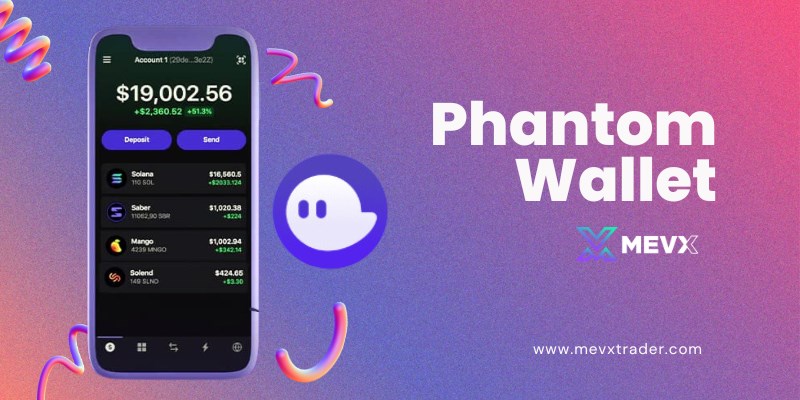In the world of cryptocurrency, security is paramount, leading many users to ask, “Can my Phantom Wallet be hacked?” While no system is completely foolproof, Phantom Wallet implements robust security features to protect your assets. Understanding these measures and how to use them effectively can significantly enhance your wallet’s safety.
Can My Phantom Wallet Be Hacked?
As cryptocurrency continues to gain popularity, many users are turning to wallets like Phantom to manage their digital assets securely. However, with the rise of digital currencies comes the inevitable concern: Can my Phantom Wallet be hacked? This question is crucial for anyone looking to protect their investments in the volatile world of cryptocurrencies.
The short answer is that while no wallet is entirely immune to hacking, Phantom Wallet incorporates several robust security features designed to minimize risks. Understanding these features and how to use them effectively is essential for safeguarding your assets. In this article, we will explore the security measures in place within Phantom Wallet, potential vulnerabilities, and best practices for ensuring your wallet remains secure.
Understanding Phantom Wallet Security Features
Phantom Wallet employs several robust security measures designed to protect users from unauthorized access and potential hacks:
- Non-Custodial Design: Phantom Wallet is a non-custodial wallet, meaning users retain full control over their private keys. This design minimizes the risk of unauthorized access because no third party has control over your funds. However, this also means that users are solely responsible for safeguarding their seed phrases, which are crucial for wallet recovery.
- Seed Phrase Backup: During wallet setup, Phantom generates a unique 12-24 word recovery phrase. This phrase acts as the master key to restore access to your wallet if you lose it. It is essential to store this phrase securely offline to prevent unauthorized access.
- Biometric Authentication: For mobile users, Phantom enhances security through biometric authentication methods like fingerprint or facial recognition. This adds an extra layer of protection against unauthorized access.
- Transaction Previews: A standout feature of Phantom is its “Transaction Previews,” which act as a firewall against digital threats. This feature scrutinizes every transaction before approval, flagging any suspicious activity and providing real-time alerts about potential risks such as phishing attempts or malicious contracts.
- Integration with Hardware Wallets: Phantom can integrate with hardware wallets like Ledger, allowing users to store their private keys offline. This significantly reduces exposure to online threats and enhances overall security.
- Open-Source Blocklist: Phantom maintains an open-source blocklist of known malicious domains and tokens. If a user attempts to interact with a flagged asset or site, they receive warnings, helping them avoid scams.
Potential Vulnerabilities and Risks
Despite its strong security measures, no wallet is entirely immune to hacking attempts or scams:
- Phishing Attacks: Users are often targeted by phishing attacks that attempt to trick them into revealing their seed phrases or private keys. These attacks can occur through malicious websites or unsolicited messages.
- User Responsibility: The non-custodial nature of Phantom means that users must take proactive steps to secure their wallets. If a user loses their seed phrase or fails to recognize a phishing attempt, they risk losing access to their funds permanently.
- Malicious Contracts: Even with transaction previews in place, there is always a risk that a hacker could create a malicious contract that could bypass these safeguards. Users must remain vigilant and avoid interacting with unknown dApps or tokens.

Best Practices for Securing Your Phantom Wallet
To minimize the risk of hacking and ensure the safety of your assets in Phantom Wallet, consider the following best practices:
- Secure Your Seed Phrase: Store your seed phrase in a safe place, preferably offline, and never share it with anyone.
- Enable Biometric Authentication: If using the mobile app, enable biometric authentication for added security.
- Use Trusted dApps: Only interact with well-known and trusted dApps and avoid clicking on unsolicited links or messages.
- Regularly Monitor Transactions: Keep an eye on your transaction history for any unauthorized activity.
- Consider Using a Hardware Wallet: For significant holdings, consider integrating Phantom with a hardware wallet to add an extra layer of protection.
- Stay Informed About Scams: Regularly educate yourself about common scams and phishing techniques in the cryptocurrency space.
In conclusion, while Phantom Wallet offers several advanced security features aimed at protecting users from hacks, the responsibility for securing your assets ultimately lies with you. By following best practices such as safeguarding your seed phrase and being cautious about phishing attempts, you can significantly reduce the risk of your wallet being compromised.
For ongoing updates and insights into cryptocurrency security and trends, be sure to follow Mevx Trader. Stay informed and empowered in your crypto journey!

